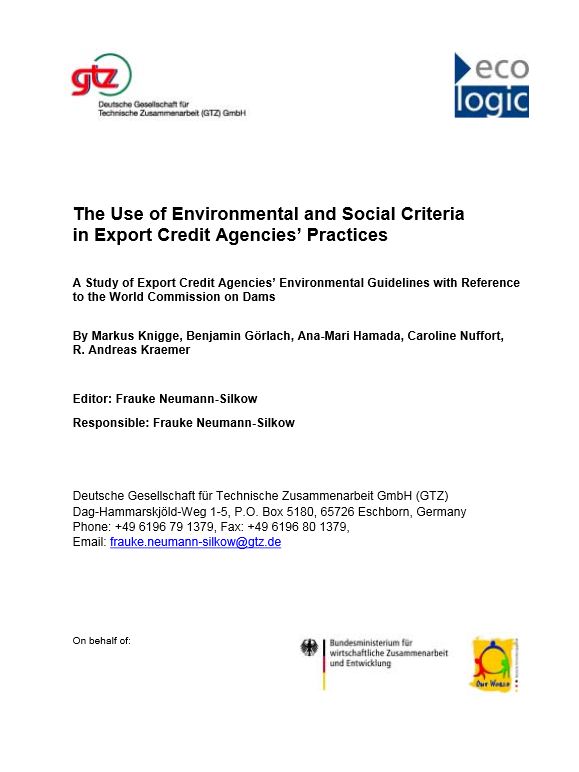The Use of Environmental and Social Criteria in Export Credit Agencies' Practices
- Project
- Duration
-
-
Ecologic published a study on the incorporation of environmental and social standards into export credit agencies' lending practices. The study, which was commissioned by the Deutsche Gesellschaft für technische Zusammenarbeit (GTZ), surveys the environmental guidelines of eight OECD member states' export credit agencies. Special emphasis was given to the support of large dams; in this context, the study evaluates to what extent the recommendations made by the World Commission on Dams are reflected in the environmental and social guidelines.
Background
Export credits are a central Instrument for trade between industrialized and developing nations. They serve to ensure exports in politically or economically unstable countries with the goal of strengthening the domestic export economy. Above all, export credits are an instrument of national foreign direct investment. Nearly all major governments economically assist their respective domestic interests through export credit agencies. These government agencies, in short, promote national exports by financing transactions in cases in which financing from private financial market is not available because of unacceptably high risks.
In the past, export credit agencies found themselves caught in the crossfire of criticism. Export credits were in many cases used to finance large projects that were not at all complementary to the goals of sustainable development. In particular, large dam projects, such as the Chinese Three Gorges Dam or the San Roque Hydro and Irrigation Project in the Philippines, were often financed by export credits without the guarantee that the corresponding environmental and social standards would be observed. It was therefore a longstanding demand that export credits be allocated with social and ecological considerations in mind.
In recent years the export credit agencies of all of the major industrialized countries established guidelines with regard to environmental and social standards. The German EulerHermes, for example, adopted a set of "Environmental Guidelines in April 2001. In December 2001 the OECD established the "Common Approaches on Environment and Officially Supported Export Credits" which outlines a common set of minimum standards for the consideration of environmental and social standards.
The findings of the study have been summarized in a 54-page project report.






